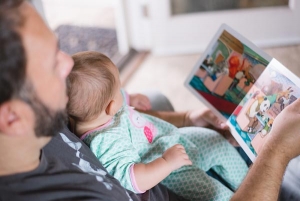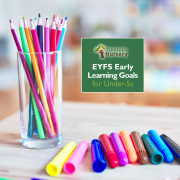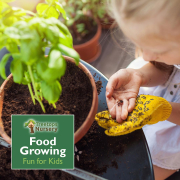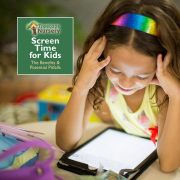EVERY Parent Should Read This

 Research has repeatedly proved that parents have an enormous impact on their children’s education, particularly if they’re involved right from the early years. That impact can be hugely positive if the parents get it right. In this article, we explore the many benefits of parental involvement in children’s education, how parents can support their children from nursery to university, improve their success, maximise their personal and career potentials and thereby give children the very best start in life. That is priceless.
Research has repeatedly proved that parents have an enormous impact on their children’s education, particularly if they’re involved right from the early years. That impact can be hugely positive if the parents get it right. In this article, we explore the many benefits of parental involvement in children’s education, how parents can support their children from nursery to university, improve their success, maximise their personal and career potentials and thereby give children the very best start in life. That is priceless.
“It has been proven time and time again that parents who invest time and place value on their children’s education will have children who are more successful in school.” (Meador)
The positive impact of parental help for children cannot be overstated. A well-supported child will go on to get better grades and ultimately be eligible for wider, higher quality, career choices once they’re older and ready to leave education. So the message is: if you’re a parent that wants your child to do as well as possible in their education and development, then your child needs your support. Be ready for the long-haul, though, because they will need your support at nursery, throughout their school years and even into higher education.
Research¹ has shown that parents can help improve their child’s development and education irrespective of: how well they did at school themselves; their socioeconomic status and ethnic/racial background.
What are the benefits of closer parental involvement?
As we mentioned above, parental involvement in a child’s development and education can ultimately lead to better results in school and enhanced life choices later on. That’s just the tip of the ice berg, though.
 Benefits for the child include:
Benefits for the child include:
Better life skills:
- Improved self-esteem and self-confidence;
- Improved social skills;
- Improved communication skills;
- Better focus and organisational skills;
- More confidence when it comes to tests/exams;
- Better problem-solving skills;
- Enhanced tenacity (to keep trying);
- Greater comprehension and general knowledge;
- Encouragement and moral support for the child;
- An enhanced, positive outlook.
 Better prospects:
Better prospects:
- Better grades;
- An improved level of skill;
- Potentially a greater number of skills;
- A wider choice of lesson topics to study;
- A choice of better schools and universities to apply to;
- Ultimately a wider choice of careers with potentially higher pay;
- Potentially a better quality of life and happiness due to all of the above.
Additional benefits:
- A closer bond between parent and child;
- A closer, more strategic alliance between parent and education setting;
- Reduced rates of truancy;
- Better behaviour;
- Higher morale because there is continuous and reliable background support.
So how can parents help?
Setting high but realistic expectations of a child, and explaining the reasons why, will ultimately help the child achieve more. Parents do not suddenly need to become strict and to make the child work all hours. It’s not about that although, of course, if a child has simply become lazy, a little encouragement will help to set the child on the right path again. It’s as much about letting the child know that you’re there for them as it is about proactively helping them if they’re struggling with a topic. Moral support goes a long way with a child but hands-on assistance is priceless when a topic seems unsurmountable for the child. Brainstorming problems together will help too. Setting aside an area of the house where the child can work undisturbed — and without distractions – will also greatly help with the child’s focus.
For preschoolers, you can read to them. You can listen to them read. You can correct them and explain things to them, setting them on the right path in a calm way, in an relaxed home environment.
Reading and writing are the foundation behind every other topic.
You can check their writing. You can also encourage even young children to check spelling and grammar. Even if you’re not great with those yourself, there are many electronic applications that will check for you/your child, whether on a PC, Mac, tablet or mobile. Microsoft Word is the obvious example — or the Open Office ‘Writer’ equivalent. That application is available free online (don’t forget to download and set the appropriate language pack too). However, the child needs to learn the correct spelling and rules around grammar, not just rely on devices to correct things for them. Parents can help with that and it is incredibly important because reading and writing represent the foundation behind every other topic.
 Modern curriculum-based text books are extremely good these days, so many parents will be able to pick even unfamiliar topics up and guide a child if they’ve not been able to find their way on a particular homework task or piece of research.
Modern curriculum-based text books are extremely good these days, so many parents will be able to pick even unfamiliar topics up and guide a child if they’ve not been able to find their way on a particular homework task or piece of research.
When tests are coming up, it can be stressful for children. Testing them in the run-up to exams will let both you and them know how they’re doing in their preparation. Even just being there for them will help maintain their wellbeing and let them know that they’re not on their own — someone has their back. Adults often understand the nuances of questions a little better than children and adolescents too, so they can help clarify things.
Involving yourself more with their nursery, pre-school or school will allow you and the staff to be on same wavelength — more like a partnership, in fact. Parent evenings are essential to attend (read more about that below) and, taking things a step further, you can even consider joining parent groups and school boards so you really have your fingers on the pulse of their education. Collaborating with an educational setting has been shown to have measurable benefits for children.
Proactively select the best settings for your child
One of the best ‘first steps’ a parent can take is to research the actual nursery, preschool, school, college or university that the child will apply for. Check their websites. Speak to staff. Ask around and check feedback on parent forums and similar. Arrange a visit — this is priceless as you’ll be able to see the setting in actual use. Are the children happy? Are the facilities good? How are the staff? Does the setting have good reviews and so on. This is an excellent first step for any parent.
Parent evenings
 Like most nurseries and educational settings, Treetops Nursery hosts parent evenings which allow nursery staff and parents to discuss the child’s learning and development in detail. It’s also a great opportunity to make sure all parents are up to date on everything happening at the nursery, in particular in regard to their own children. Parent evenings typically happen twice a year but, at Treetops, we’re always available to speak to parents, so please don’t feel you have to wait until a parent evening to discuss anything about your child.
Like most nurseries and educational settings, Treetops Nursery hosts parent evenings which allow nursery staff and parents to discuss the child’s learning and development in detail. It’s also a great opportunity to make sure all parents are up to date on everything happening at the nursery, in particular in regard to their own children. Parent evenings typically happen twice a year but, at Treetops, we’re always available to speak to parents, so please don’t feel you have to wait until a parent evening to discuss anything about your child.
Personal Development Folders for every child
Every child at Treetops Nursery also has their own personal development folder, which is kept up to date by a ‘key worker’ assigned to the child. These staff members monitor progress of the child’s learning and development as they progress through the nursery and pre-school. We actively encourage parents to view their child’s development folder regularly and to keep up to date on progress through dialogue with the key worker for their child. Parents are also invited to add details of experiences the child has outside of the nursery. In this way, a more rounded picture of the child’s development is maintained.
If you’re a parent that wants your child to do as well as possible in their education and development, then your child needs your support.
Summing up
We hope that this article has gone some way to explain why the involvement of parents in their children’s education is so impactful and so incredibly important. A child that has experienced the involvement of a parent in their education is likely to end up with a more rounded education with better grades, enhanced life skills and ultimately better life choices. As we said before, that is priceless.
Contact Treetops Nursery
If you are looking for a nursery or pre-school in Willesden, north west London, and would like more information about Treetops Nursery, we’d be delighted to tell you more about the setting and explain what we can do for your baby or toddler. Call 020 8963 1259 or email us here and we’ll be happy to help. You can also arrange a visit here and see our location on a map here.









